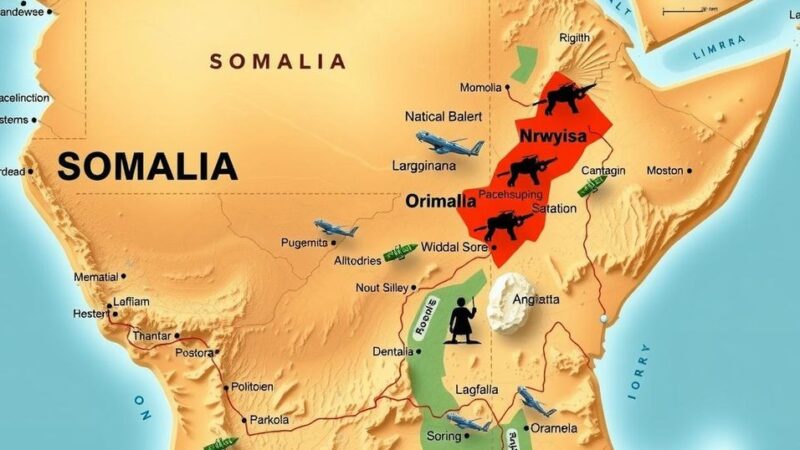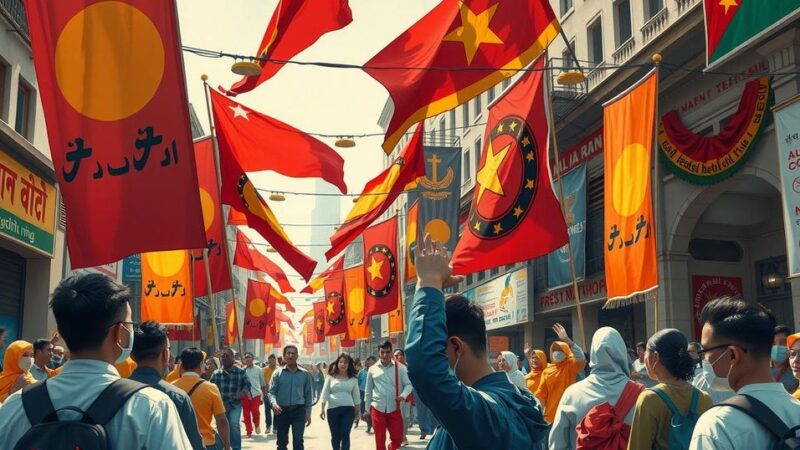The Gambia’s political discourse is mired in criticism and character attacks, sidelining constructive solutions and alternatives. Comparisons with Senegal are misplaced, as Gambian political dynamics differ significantly. Addressing issues like youth unemployment and food sovereignty requires strategic proposals rather than merely seeking to remove President Barrow. Promoting a culture of constructive and civil engagement is essential for national progress.
Current political discourse in The Gambia is characterized predominantly by criticism, character assassination, and mudslinging, offering little in terms of viable alternative policies or solutions. This aggressive behavior undermines democratic principles, limiting opportunities for peace, constructive discussions, and social justice. The nation faces critical challenges that require urgent attention; thus, time spent on trivial disputes is counterproductive. Some voices suggest that the only viable option for Gambians is to vote President Barrow out, which is a narrow perspective that fails to acknowledge the complexities of the political landscape.
Certain individuals draw misguided parallels between the political environments of The Gambia and Senegal, particularly following the PASTEF movement’s electoral success in Senegal. They advocate for street protests, questioning the necessity of such actions when Gambians are not facing a tyrant but a democratically elected leader who promotes peace. It is crucial to realize that Gambians acknowledge President Barrow as a leader committed to democracy, rather than a dictator needing removal.
Furthermore, there are marked differences between the two countries’ political frameworks, particularly regarding term limits in their constitutions. Senegal’s constitution clearly outlines these limits, contrasting with the lack of similar regulations in the Gambian constitution. Unlike former President Macky Sall’s efforts to suppress opposition movements in Senegal, President Barrow does not hinder political participation. Moreover, the Senegalese political discourse empowered by PASTEF presented alternative policies resonating with the populace, a stark contrast to Gambian political movements which often rely on criticism without offering substantial solutions.
Proponents of removing President Barrow should recognize that the nation requires strategic thinkers capable of fostering economic transformation rather than heroes. A pressing concern is the education system established during colonial rule, which inadequately equips individuals with skills necessary for economic independence. Colonial economic structures have perpetuated poverty, leading to external debt dependency that hampers development, a situation common across many African nations.
Youth unemployment is another severity that warrants immediate attention, as it affects countries worldwide, including developed nations. The Barrow administration is actively working to mitigate this issue; thus, critics must present viable strategies exceeding the existing government efforts. Additionally, methods to achieve food sovereignty in The Gambia require attention; this entails the autonomy to produce one’s food instead of relying on external suppliers or aid.
It is crucial to differentiate between food security, which pertains to access to food, and food sovereignty, emphasizing producer autonomy. Political discussions should shift focus towards resolving these significant developmental challenges instead of engaging in trivial disputes that reflect a lack of political maturity.
Frequent unsubstantiated allegations of corruption in public service further complicate the political atmosphere. Those levying accusations should articulate concrete proposals to combat corruption instead of merely criticizing. There have been concerted efforts to provoke President Barrow, mischaracterizing him as a dictator. The Gambian populace recognizes he does not exhibit dictatorial traits; were that the case, dissenters would likely be silenced as witnessed in past regimes.
Though President Barrow is not without flaws, he embodies the spirit of constructive political engagement. A culture of tolerance, patience, and humor in political discourse is necessary for the nation’s advancement. With Gambia’s current democratic status, citizens have the opportunity to engage positively and collaboratively to drive necessary strategic transformations.
In summary, Gambian political discourse currently suffers from toxicity, marked by unconstructive criticism rather than genuine debate or solution-oriented proposals. Acknowledging the distinct political contexts of The Gambia and Senegal is vital, as is the need for strategic thinking to address pressing issues such as unemployment, education, and food sovereignty. It is crucial for political actors to engage in civil discourse, promoting the nation’s transformative potential rather than perpetuating divisive rhetoric.
Original Source: thepoint.gm






